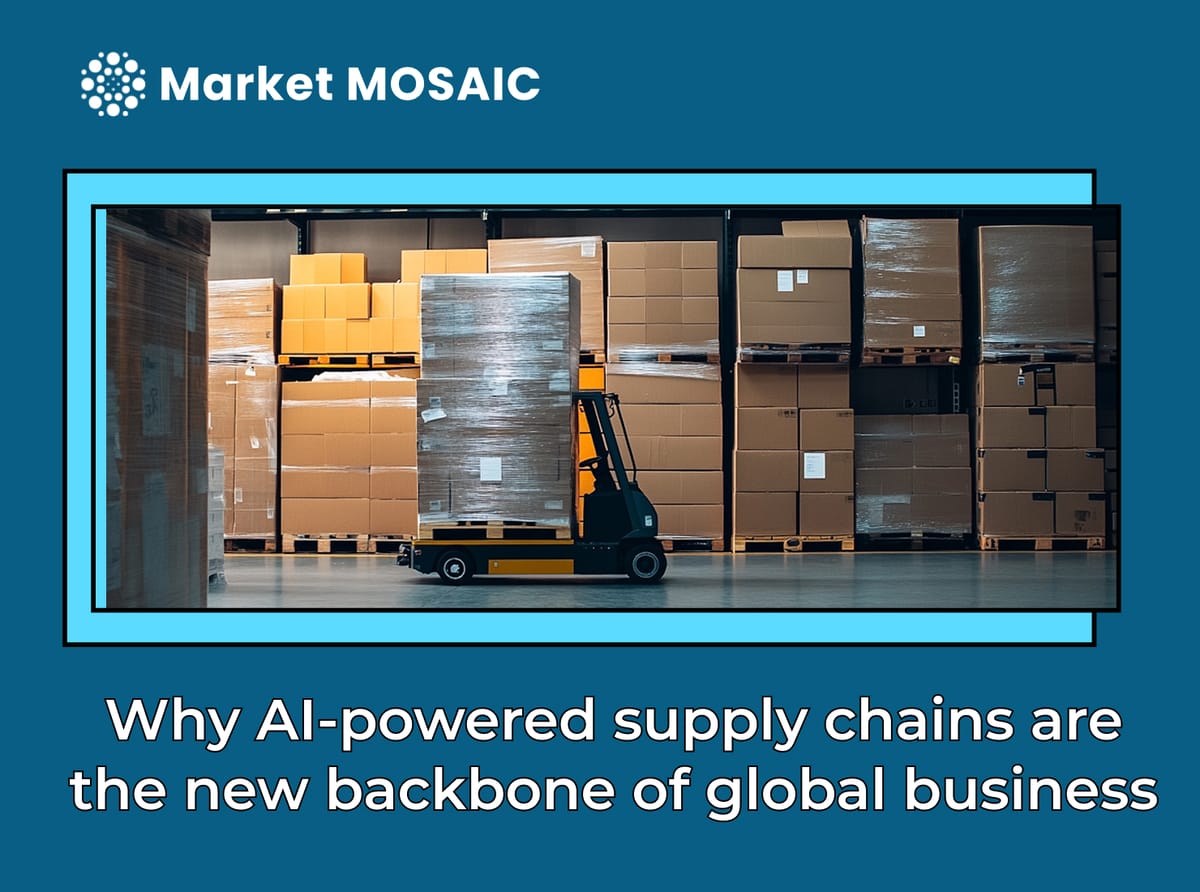Why AI-powered supply chains are the new backbone of global business
AI is turning supply chains into strategic growth engines. With 90%+ forecasting accuracy and 25% faster fulfillment, companies moving beyond manual systems are gaining a sharp edge in efficiency, agility, and market leadership.

For decades, supply chains functioned quietly in the background, until they broke. The pandemic shattered global logistics, exposed inefficiencies, and turned supply chain resilience into boardroom priority. In today's hyper-competitive economy, your supply chain isn’t just an operational concern. It’s your brand promise, profit margin, and growth engine all rolled into one.
This urgency has accelerated one of the most important transformations in modern business: the transition from manual systems to AI-powered supply chains.
What is an AI-powered supply chain?
An AI-powered supply chain integrates artificial intelligence across planning, forecasting, inventory management, and fulfillment. It uses machine learning to analyze vast streams of data, historical sales, weather patterns, social sentiment, and even competitor behavior to make predictive, real-time decisions.
Unlike traditional systems that rely on fixed rules or past trends, AI systems learn continuously, adjusting as new data flows in. This makes them adaptive, agile, and ideal for a world where consumer preferences change overnight and global disruptions are the new norm.
The adoption curve
Leaders like Amazon, Walmart, and Alibaba were early adopters, using AI to forecast demand, optimize routes, and even automate last-mile delivery. But the momentum is spreading fast.
DTC brands, logistics startups, and mid-market manufacturers are now integrating AI into their supply networks not because it’s trendy, but because it’s essential.
According to our analysis, companies using AI inventory systems have improved demand forecasting accuracy by over 90%, reduced stock-related losses by 35%, and cut fulfillment time by 25%.
The real impact: profits, precision, and people
AI isn’t replacing supply chain teams, it’s empowering them.
In one notable case, a retail CEO revealed that switching to AI-based inventory planning freed up over 500 hours of manual reconciliation per quarter. That time was reinvested into strategic decisions expanding stock keeping units, testing new markets, and improving customer experience.
Businesses using AI in inventory management also report tighter stock control, faster delivery cycles, and significantly lower waste. This is especially critical for industries with perishable goods or seasonally volatile products, where missteps can lead to substantial financial losses.
The executive edge in supply chain intelligence
For founders and business leaders, adopting AI in the supply chain is no longer a matter of IT modernization, it’s a strategic imperative. Companies that digitize their logistics are not only more efficient; they are more competitive, more profitable, and more resilient in crises.
The key is to approach implementation with focus. Start small: deploy AI for a single product category or warehouse. Choose platforms that integrate with your existing ERP systems. And most importantly, empower cross-functional collaboration between data teams and operations leads. When these systems are designed around your business DNA, the ROI follows fast.
As we move further into 2025, agility will define the winners. The companies that succeed will be those with supply chains smart enough to anticipate demand, agile enough to react to disruption, and lean enough to sustain profitability.





